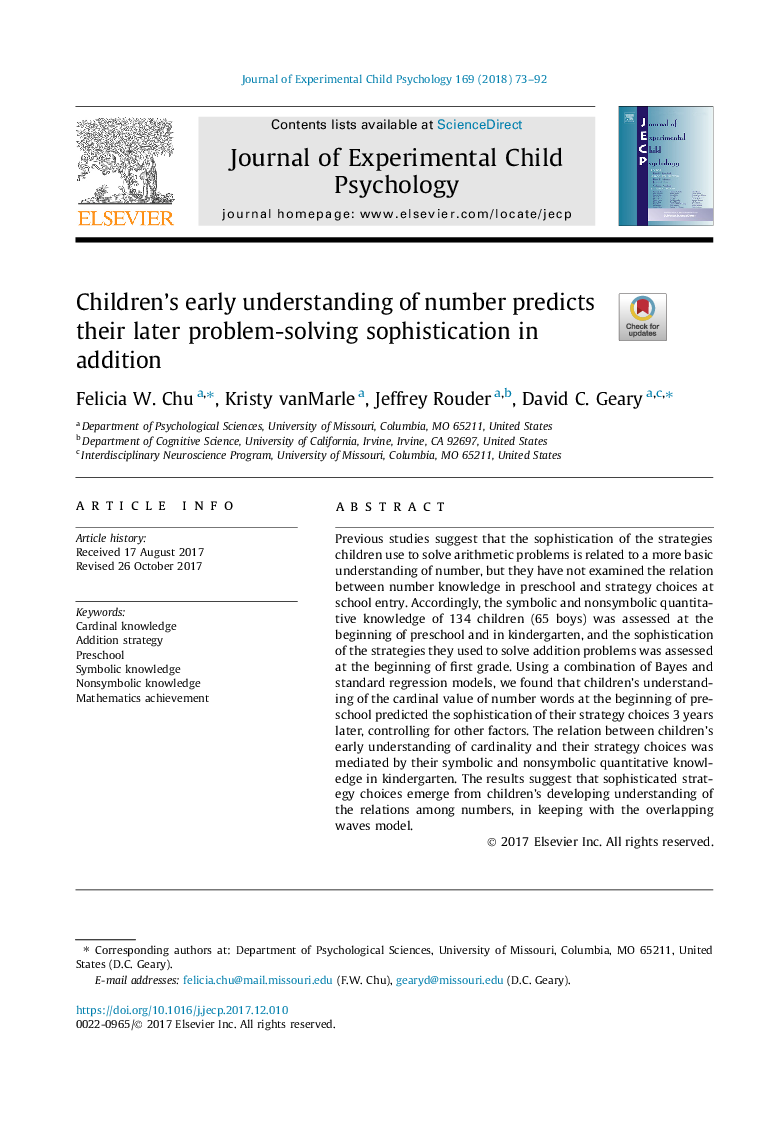| Article ID | Journal | Published Year | Pages | File Type |
|---|---|---|---|---|
| 7274041 | Journal of Experimental Child Psychology | 2018 | 20 Pages |
Abstract
Previous studies suggest that the sophistication of the strategies children use to solve arithmetic problems is related to a more basic understanding of number, but they have not examined the relation between number knowledge in preschool and strategy choices at school entry. Accordingly, the symbolic and nonsymbolic quantitative knowledge of 134 children (65 boys) was assessed at the beginning of preschool and in kindergarten, and the sophistication of the strategies they used to solve addition problems was assessed at the beginning of first grade. Using a combination of Bayes and standard regression models, we found that children's understanding of the cardinal value of number words at the beginning of preschool predicted the sophistication of their strategy choices 3â¯years later, controlling for other factors. The relation between children's early understanding of cardinality and their strategy choices was mediated by their symbolic and nonsymbolic quantitative knowledge in kindergarten. The results suggest that sophisticated strategy choices emerge from children's developing understanding of the relations among numbers, in keeping with the overlapping waves model.
Keywords
Related Topics
Social Sciences and Humanities
Psychology
Developmental and Educational Psychology
Authors
Felicia W. Chu, Kristy vanMarle, Jeffrey Rouder, David C. Geary,
